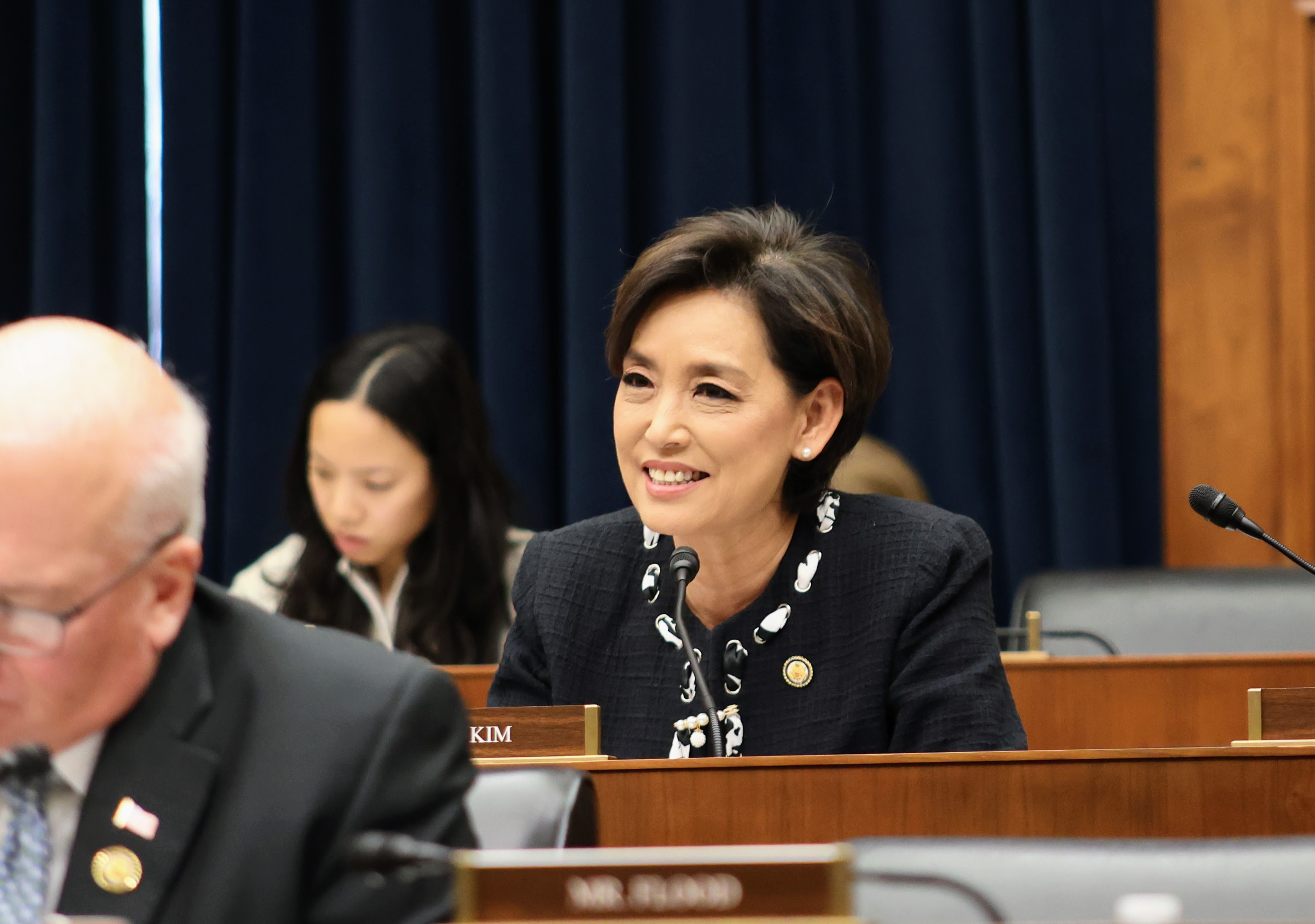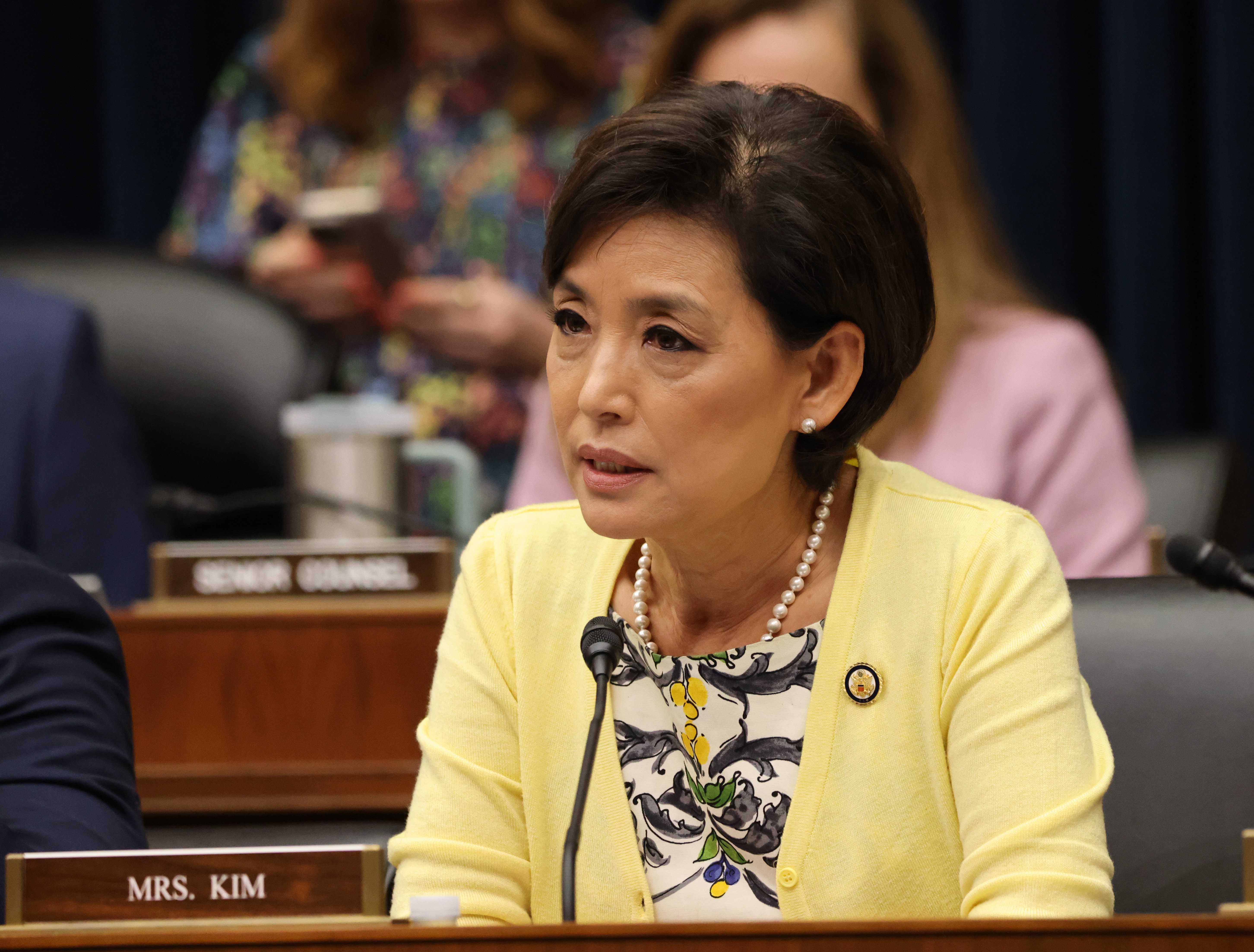For more than a year, reports of hate incidents against Asian Americans have drastically climbed.
Legislation meant to combat the attacks and racism is headed to President Joe Biden’s desk for his signature after passing a final vote in the House – a win for advocates and the Asian Americans and Pacific Islander community.
The House passed the COVID-19 Hate Crimes Act, 364-62, which would expedite the Justice Department’s review of hate crimes and designate an official at the department to oversee the effort.
Rep. Judy Chu, D-Calif., chair of the Congressional Asian Pacific American Caucus, said in a news conference Tuesday that “after a year in which we’ve seen 6,600 reported anti-Asian hate crimes and incidents and after a year of the Asian American community crying out for help, today, Congress is taking historic action to pass long-overdue hate crimes legislation.”
“These incidents have terrified the Asian American community,” she said.
After a mass shooting in Georgia in March that killed eight people – six of whom were women of Asian descent – lawmakers in both chambers of Congress called for quick action on the legislation. May is Asian Pacific American Heritage Month.
The bill passed the Senate in April by an overwhelming bipartisan vote of 94-1, becoming one of the few pieces of legislation to be negotiated and pass the gridlocked upper chamber.
“The vote today on the Anti-Asian hate crimes bill is proof that when the Senate is given the opportunity to work, the Senate can work to solve important issues,” Majority Leader Chuck Schumer, D-N.Y., said from the Senate floor before that vote.
The last piece of hate crime legislation to be signed into law was the Matthew Shepard and James Byrd Jr. Hate Crimes Prevention Act, which expanded the law to include crimes motivated by sexual orientation, gender identity and more. President Barack Obama signed the measure in 2009 as a provision of the National Defense Authorization Act.
Violence against Asian American and Pacific Islander communities has grown despite increased national attention and political action against anti-Asian hate. The uptick in anti-Asian violence was first reported in March 2020 as COVID-19 began spreading, and some politicians, including President Donald Trump, blamed China for the pandemic.
There was a more than 164% increase in anti-Asian hate crime reports to police in the first quarter of 2021 in 16 major cities and jurisdictions compared with last year, according to a report from the Center for the Study of Hate and Extremism at California State University, San Bernardino.
More than 6,600 hate incidents have been reported in the year since the pandemic began in the USA, Stop AAPI Hate announced this week. More than a third of those incidents were reported this March, according to the organization founded last year in response to increased targeting of Asian Americans and Pacific Islanders during the pandemic.
In New York this week, a woman was arrested after being seen on surveillance video attacking two Asian women because they were wearing masks, striking one with a hammer.
Tuesday’s House vote fell on the third annual National Asian American and Pacific Islander (AAPI) Day Against Bullying and Hate, which coincides with the birthday of Vincent Chin, who was murdered in 1982 in a hate crime. Chin was a Chinese American man in Detroit killed by two autoworkers who thought he was Japanese, whom they blamed for the industry’s struggles. His killers paid a $3,000 fine each and went free.
Though the hate crimes legislation got broad bipartisan support in the Senate and widespread support in the House, it faced some Republican resistance.
Rep. Jim Jordan, R-Ohio, said from the House floor Tuesday that his GOP colleagues took issue with provisions in the bill such as the “ambiguous hotlines for people to report anything they find troubling.”
Biden supports the COVID-19 Hate Crimes Act. He said in March, “It’s time for Congress to codify and expand upon these actions – because every person in our nation deserves to live their lives with safety, dignity and respect.”
White House press secretary Jen Psaki tweeted Tuesday that Biden would sign the legislation into law this week.
For some AAPI members of Congress, the legislation is a good start to combat some of these crimes, but advocacy and support from other communities is necessary.
Rep. Grace Meng, D-N.Y., author of the legislation, released a video in September that played several racist voicemails her office received.
Some of the messages referred to the “kung flu,” an offensive and derogatory term used to describe COVID-19.
“During COVID-19 we have witnessed unspeakable acts of violence – even death – against our community. It breaks my heart to see such hateful incidents. But I believe this moment in American history has planted new seeds of friendship and allyship,” Meng said in a statement Tuesday. “Let us go forward in solidarity within our community and lock arms with other communities.”
Rep. Young Kim, R-Calif., rose in support of the “Senate-amended, bipartisan” legislation Tuesday, saying hate crimes are “not reflective of the country that welcomed me and my family into its fabric.”
“That’s why I’m glad Congress is coming together in a bipartisan way to take steps against the hate targeting communities like the AAPI community,” she said. “However, let’s recognize that we cannot legislate hate out of our people’s hearts and minds. We must treat each other with respect and see each other as Americans.”
Chu, who was born in the USA, told USA TODAY in March that “like many Asian Americans,” she has received “comments like ‘where are you from?’” Those questions make her feel “seen as a foreigner in my own land.”
The text of the No Hate Act, legislation co-sponsored by Chu that is included in the COVID-19 Hate Crimes Act, would enact a more informed approach to prevention by providing grants to states to improve hate crime reporting.
That provision would allow courts to require people convicted under the Matthew Shepard and James Byrd Jr. Hate Crimes Prevention Act to take part in community service and educational programs as a condition of supervised release.
House Judiciary Committee Chair Jerry Nadler, D-N.Y., called the data around increased anti-Asian hate “both humbling and frightening.”
“Everyone deserves to live without fear of violence against themselves and their families. And our country needs a way forward past this era of violence and hate. The swift passage and implementation of the COVID-19 Hate Crimes Act will prove crucial to this endeavor,” he said during Tuesday’s news conference.




